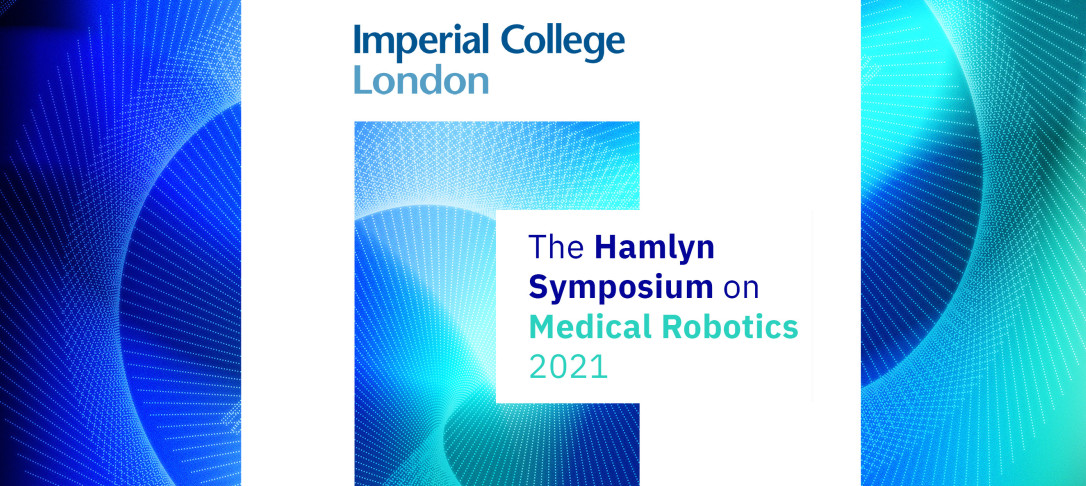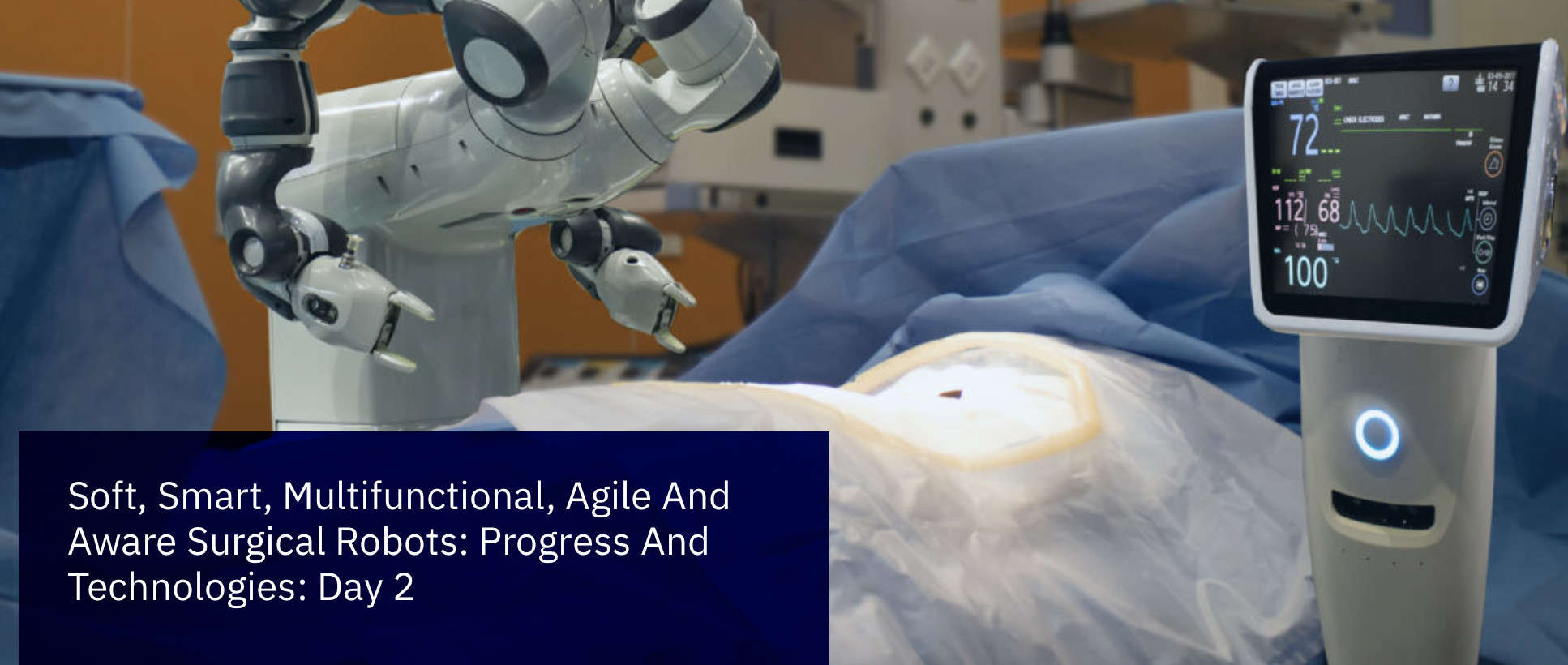
The Hamlyn Symposium on Medical Robotics (HSMR) is now in its 13th year and has provided an annual forum for surgeons and engineers from across the globe to network and explore the latest developments in medical robotics. Every year researchers, clinicians and engineers are invited to submit papers on a range of topics covering clinical specialities in Urology, Cardiac Surgery, Neuro Surgery, Thoracic Surgery, General Surgery, Gynaecology, ENT, Orthopaedic and Paediatric Surgery.
This year we plan to build beyond the previous achievements and take the symposium to even higher successes with the theme of ‘Surgery and Beyond’. We have already received full CPD accreditation from the Royal College of Surgeons and to complement this we are planning a programme with increased focus on clinical practitioner centered talks, workshops and presentations.
Hamlyn Symposium on Medical Robotics 2021: Workshop
 Format
Format
- Three-day workshop, each 2 h long, including breaks.
- Date/Time: 9, 10, and 11 June 2021, 14.00-16.00.
Abstract
This workshop aims to bring together medical experts active in the field of minimally invasive interventions, medical device manufacturers, experts in soft flexible and stretchable electronics and sensors, computer scientists and roboticists creating and studying soft and stiffness controllable robots. We will explore the synergies that will arise from robotic surgeons cooperating with such modern robots to conduct advanced surgical interventions previously not possible.
This is a 3-day workshop, each day focusing on different aspects of this exciting field:
- For details and to register for Day 1 please click here.
- For details and to register for Day 3 please click here.
Day 2: Soft Sensors for soft robots
There is a growing need for electronic and sensing devices that conform to non-flat surfaces and that can accommodate mechanical motions and stresses. Soft surgical robots and tools need to sense their environment to navigate through it, but also to characterize tissues and fluids in situ for diagnostic purposes. To introduce flexibility and stretchability, a move away from traditional materials and fabrication processes is needed. Actuation is also a crucial part in these developments. The combination of soft (continuum) robots with stretchable sensors and electronics can bring new developments and functionalities. There is still great potential for advancing the state of the art, with a need for further miniaturisation, increased functionality, in situ computation, signal processing and sensing capabilities.
Day 2 – Learning outcomes:
- Understanding the need for sensing in soft robotics, surgical robotics and robotics in general
- Knowledge of technologies and challenges in flexible and stretchable sensing skins for robots
- Application of sensing patches in wearables and physiological monitoring
- Knowledge on fabrication methods, materials, device architectures and functionalities of soft sensing devices that can be applied to soft robotics.
- Knowledge on the practical application of soft sensors to soft surgical robotics.
- How sensing information can be used for clinical decision making in real-time or for robot control.
Programme
14.00-14.10: Panagiotis Kassanos and Kaspar Althoefer: Chairing
14.10-14.40: Ravinder Dahiya, Professor of Electronics and Nanoengineering, James Watt School of Engineering, University of Glasgow: Soft Electronic Skin
14.40-15.10: Benjamin Tee, Assistant Professor, National University of Singapore: Materials and Systems for Scalable & Sustainable Intelligent Machines
15.10-15.15: 5 min Break
15.15-15.45: Carmel Majidi, Clarence H. Adamson Professor of Mechanical Engineering, Carnegie Mellon University, Pittsburgh USA: Soft Robots that Feel: Multimodal Sensing Skins for Soft Robot Grasping
15.45-16.15: Sheila Russo, Assistant Professor, Mechanical Engineering, Materials Science & Engineering, Boston University: Soft robots for advanced interventional endoscopy
CALL FOR POSTERS
- Deadline: 31st May 2021 23:59 BST
Submit your 1-page pdf document via the Hamlyn Symposium poster submission form.
Please indicate on the submission portal at the relevant field that your submission is for this workshop.
Please use the Hamlyn Symposium poster templates available here.
We invite the submission of high-quality research posters, as part of the workshop. Submissions will be selected based on their relevance to the workshop, merit and novelty. Authors of accepted posters will also need to prepare a prerecorded 15 min presentation explaining their work that workshop attendees will be able to watch on their own time before or after the workshop. Videos will be available on the workshop website together with the posters.
A Best Poster Award of £300 will be awarded to the best submission.
We are exploring the possibility for a special issue on a top robotics and sensing journal, based on the workshop.
Day 2 of this workshop is worth 2 CPD points, please register to qualify for certification.

 Format
Format